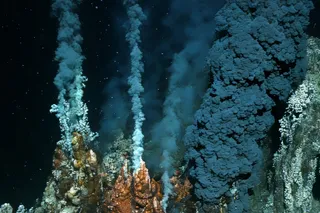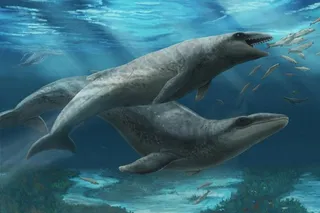If you’ve ever listened to a recording of whale song, you know that it can be haunting, beautiful, and moving. The songs of humpbacks and the clicks, called codas, of sperm whales are sophisticated forms of communication, according to research.
But what are they actually saying to each other? We humans don’t know, but some scientists are trying to find out. And when they do, they hope that being able to communicate with whales could not only help save life on this planet but also allow us to communicate with life from other planets as well.
Project CETI, which stands for Cetacean Translation Initiative, is a multidisciplinary effort made up of marine biologists, linguists, experts in natural language processing, AI experts, roboticists, and, yes, cryptographers. Founded by David Gruber in 2017, CETI is using the latest advances in artificial intelligence to try to crack the code of sperm whale communication.
...















